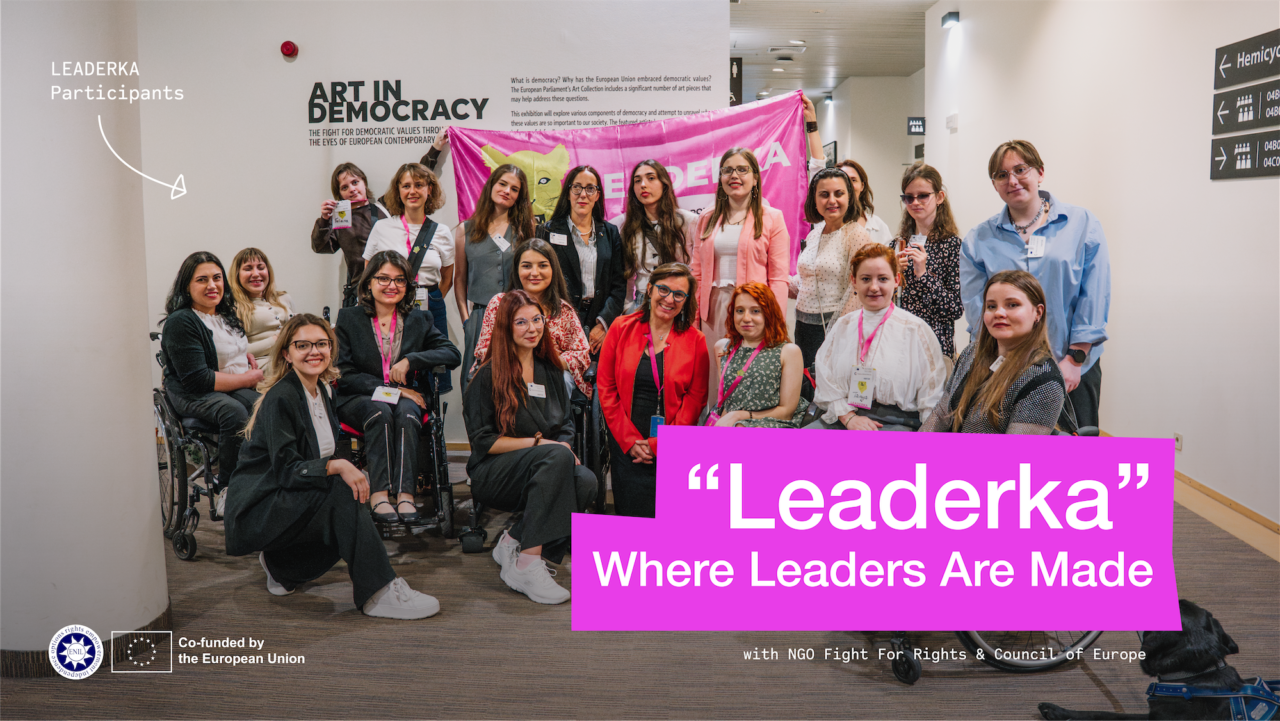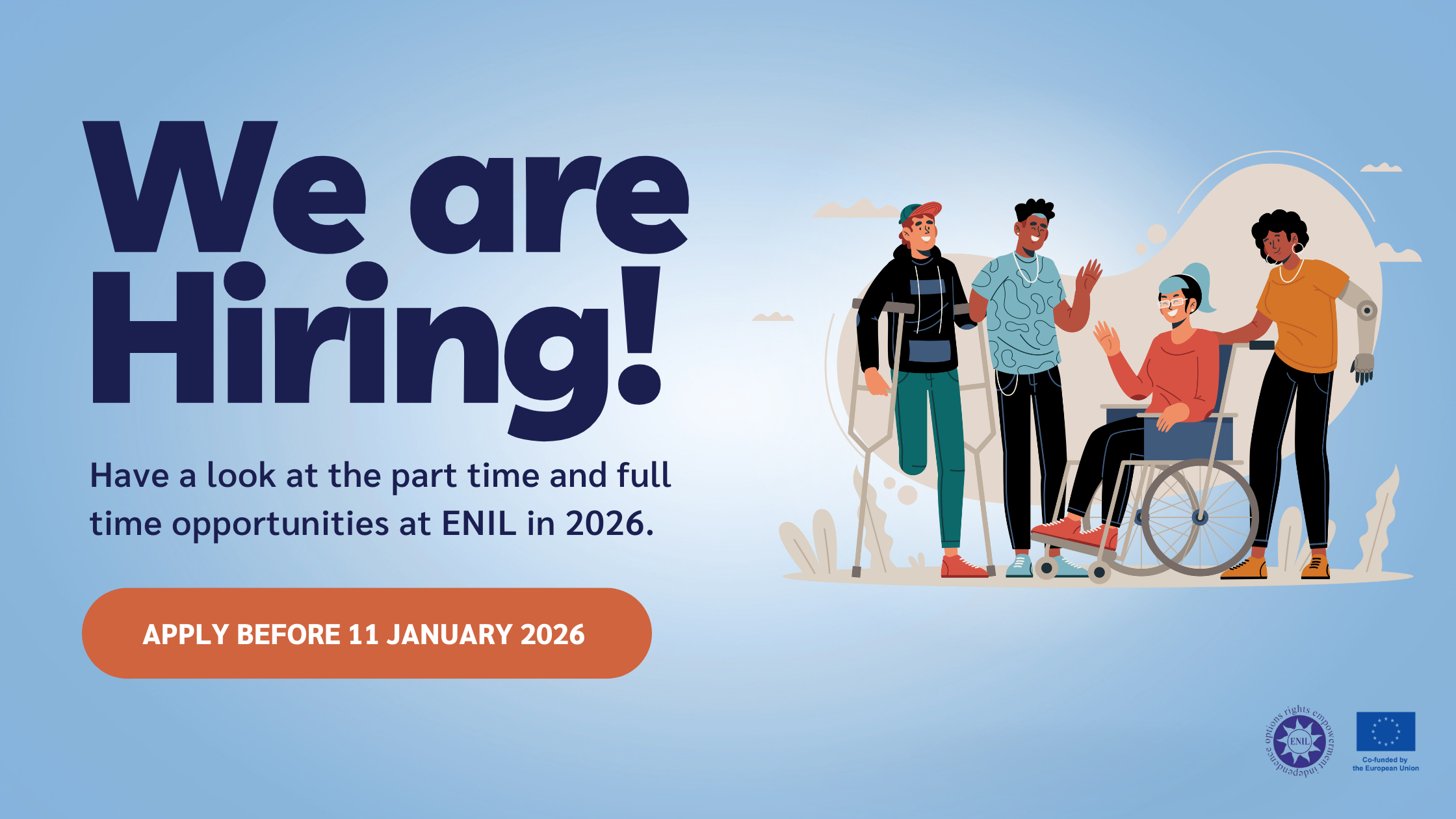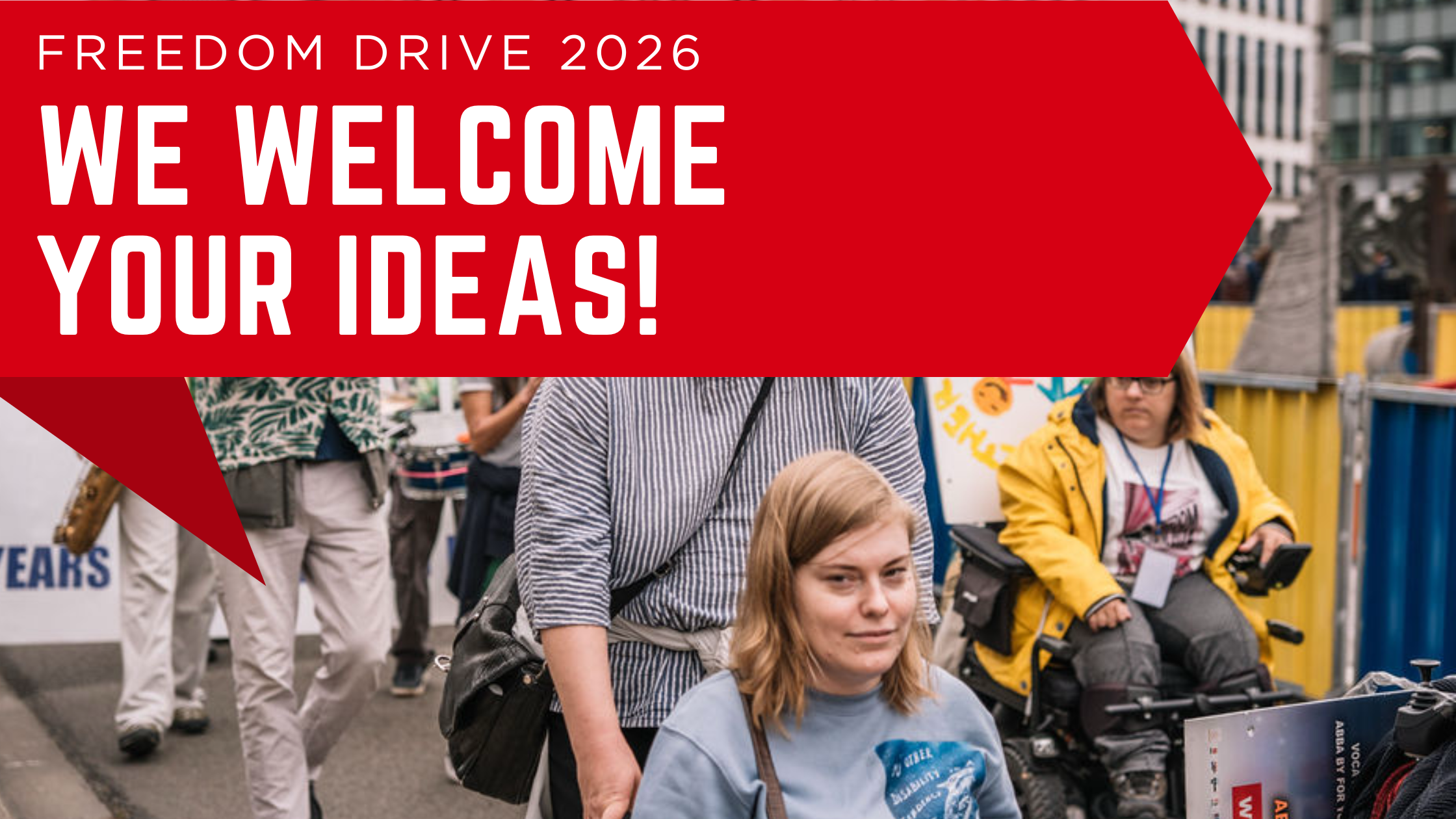July was Disability Pride Month and we celebrated it in the most powerful way.
ENIL (European Network on Independent Living) and Fight For Right – a Ukrainian organisation defending the rights of disabled people – organised Leaderka Summer School, a leadership program rooted in disability justice, intersectional feminism, and solidarity.
A space for learning, connection, and collective empowerment
Held from 14 to 18 July in Brussels, Belgium, and supported by the European Youth Foundation of the Council of Europe, Leaderka was created to empower young disabled women and girls from EU candidate countries (Ukraine, Moldova, Georgia, Albania, North Macedonia, Montenegro, Serbia, Bosnia and Herzegovina, and Turkey) to become strong leaders, advocates, and agents of change in their communities and beyond.
But Leaderka was more than a school. It was a space to build community. A space to feel seen and heard. A space where diverse lived experiences and perspectives came together to shape a collective story of resistance, strength, and care. We learned leadership skills, but also how to uplift one another, share strategies for advocacy, and build cross-border solidarity rooted in justice.
Learning to lead in an ableist world
Throughout the week, participants engaged in intensive trainings, workshops, and open discussions. We deepened our understanding of political processes, sharpened our advocacy tools, and explored what it means to lead as disabled women in an ableist world.
Topics ranged from feminist leadership, advocacy and independent living, to EU institutions, human rights, and the EU accession processes. Practical sessions showed how to influence political systems and push for disability rights at national and European levels. We gained insights into the work of the Council of Europe, the European Court of Human Rights, and met with women leaders and representatives of European institutions and civil society who shared their journeys and struggles.
Guided by a committed team
Throughout the week, participants were also guided by dedicated trainers and facilitators from ENIL and Fight For Right, including Yuliia Sachuk, Tetiana Herasymova, Maria Ponomarenko and Antonella Candiago, who helped create a space of learning grounded in disability justice and intersectional feminism.
Visiting the heart of the EU
One of the activities included a visit to the Parlamentarium, the European Parliament’s visitor centre, where participants could engage with the EU’s history and legislative processes in an interactive way. This was followed by an inspiring meeting with the Member of the European Parliament (MEP) Tilly Metz (Greens/EFA), known for her strong positions on animal welfare, health policy, and human rights. Her insights and openness invited important reflections on how to influence European policymaking through a rights-based and feminist lens.
Learning from experts, feminist and disability rights leaders, and change-makers
We were honoured to hear from many inspiring speakers and trainers, including disability rights advocates, feminist leaders, human rights defenders, policymakers, and community organisers. Among them, Nadia Hadad, Co-chair of ENIL and lifelong activist and engineer deeply engaged in European disability policymaking, and Katrin Langensiepen (Greens/EFA Group), the first woman MEP with a visible disability, who shared her journey in politics and her commitment to equality.
Participants also met and learned from figures such as Stéphanie Lange, the first disabled member of the Brussels Regional Parliament; Jana Degrott, a young activist and co-founder of We Belong Europe.
We were inspired by speakers working within EU institutions, like Irene Ceccanti, Sophia Grunwald, and Alessandro De Giacomo from the European Commission, and by those building change from the ground up, including including Elena Ratoi, expert in women’s empowerment, gender equality, and disability inclusion; Maryna Hovorukhina, communications strategist and advocate for social change; and Nikola Ilic, leadership professor and long-time pro-democracy organiser.
Participants heard from two prominent Ukrainian leaders: Oleksandra Matviichuk, Nobel Peace Prize laureate and Head of the Center for Civil Liberties, who shared insights from her human rights work during the war; and Olga Aivazovska, Head of the Civil Network OPORA and expert on democratic processes, known for her leadership in election monitoring and civic engagement.
Connecting with women leaders and allies in Brussels
Another highlight of the week was a warm and lively networking dinner, where participants and trainers gathered with women leaders and allies from the disability rights and feminist movements in Brussels. It was a moment to connect on a personal level, exchange experiences, and imagine what a just and inclusive Europe could look like.
We were honoured to be joined by inspiring guests such as Elke Van den Brandt, Minister for Mobility in the Brussels Region, and Visnja Bacanovic, Regional Gender and Good Governance Specialist at UN Women.
We also welcomed Tamara Makoni, inclusion and culture expert and founder of Kazuri Consulting, who recently published Women, Intersectionality & Europe, and was named by EU Insider as a top voice to follow in DEI in Europe. Ioana Banach, co-founder of the Flamingo Collective and long-time ecofeminist organiser, shared insights from her work connecting feminism, ecology, and democracy. And Sandra Melone, CEO and founder of Zancora Consulting, added her perspective on inclusive leadership and transformative change.
What comes next
The journey doesn’t end here. Following the program, selected participants will undertake a week-long placement with European disability rights organisations, gaining practical experience and strengthening their networks. They will also receive continued mentorship support from Fight For Right and ENIL to guide them as they step into leadership roles in their own contexts.
A different kind of leadership
Leaderka reminded us that leadership isn’t about perfection, having all the answers, or fitting into a stereotyped idea of strength. It’s about showing up with honesty, being accountable to our communities, and making space for others to rise with us. It was a celebration of pride, resilience, and the power of collective action.
Written by Antonella Candiago



